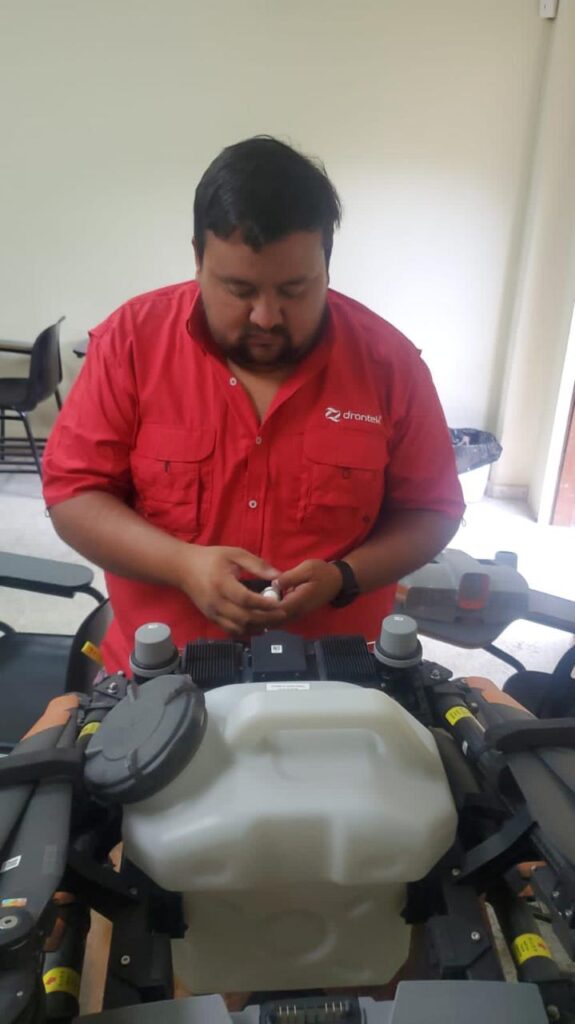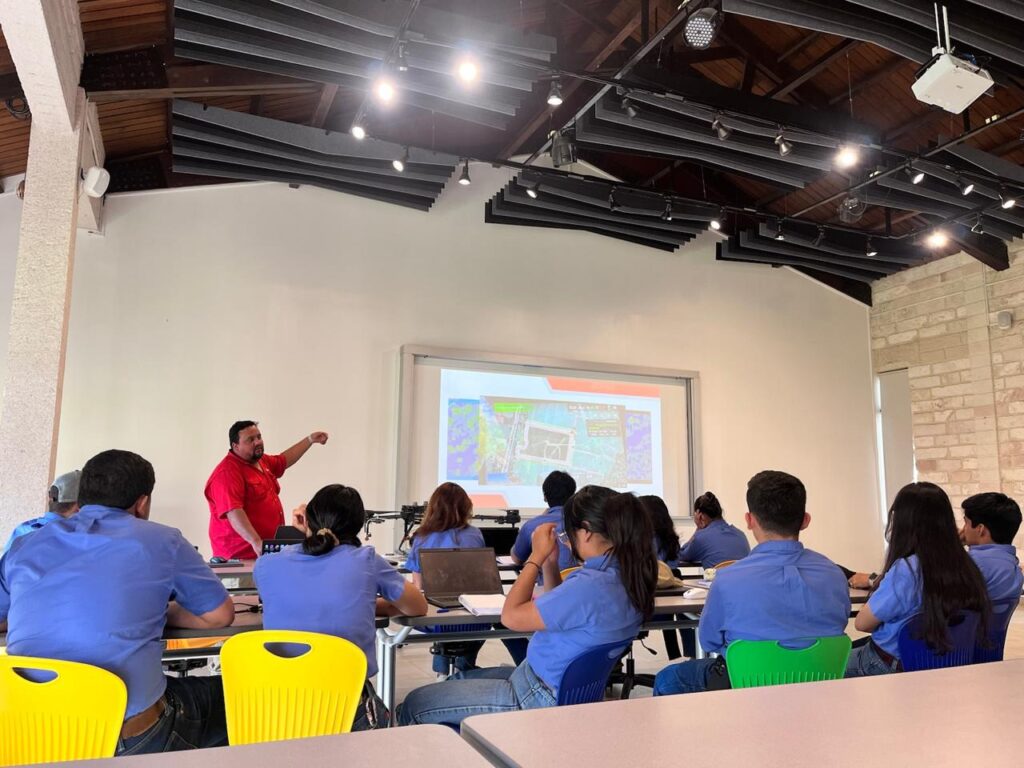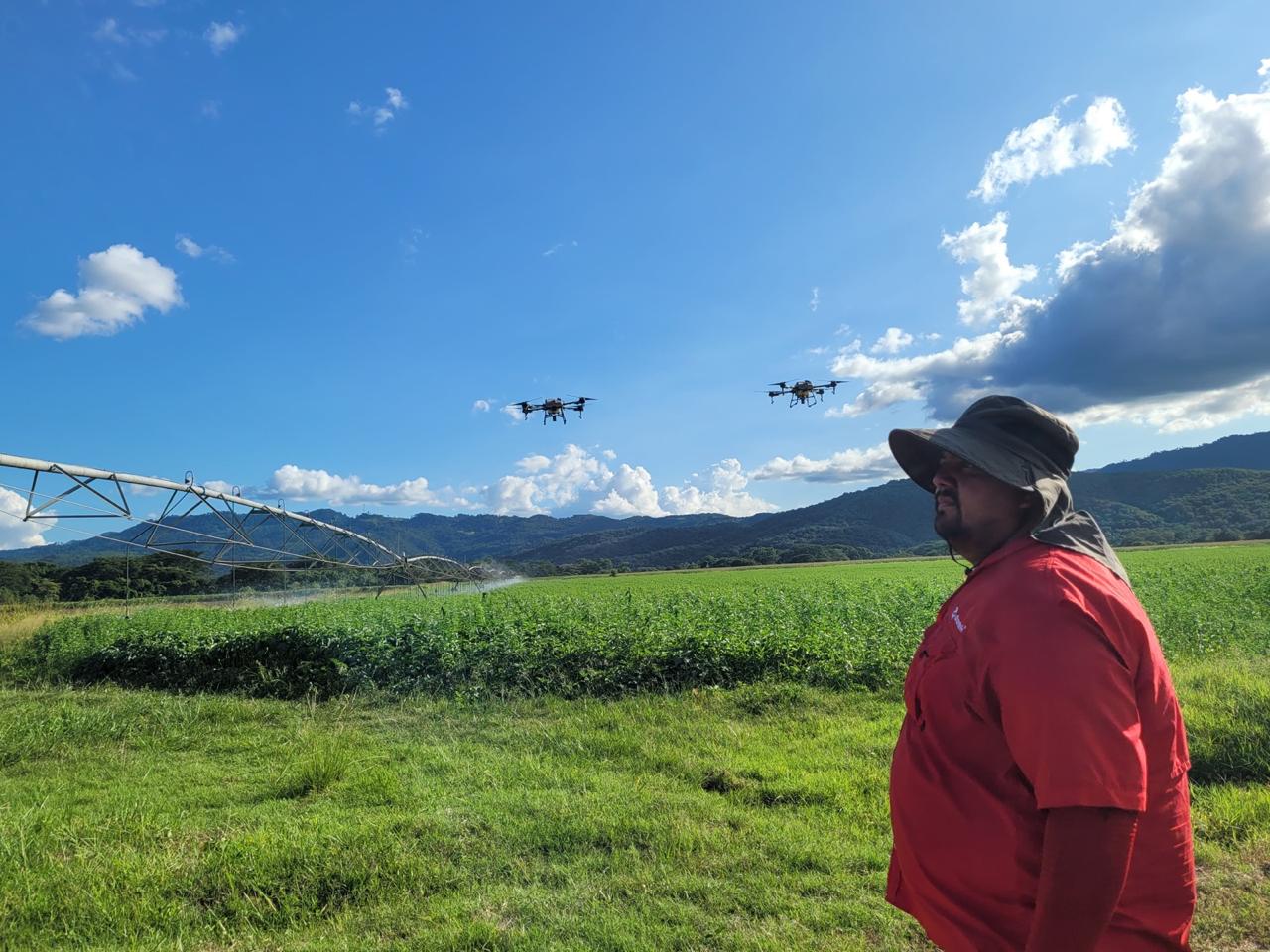Orlando Solís (Class of 2018, El Salvador) was in his fourth year at EARTH when he first held a drone controller in his hands. With the help of his professors, he piloted the drone high above, affording him a close-up view of treetops, the shades of the land, and the university rooftops. That first experience—seeing his surroundings from a bird’s-eye view—stayed with him forever.
That moment marked the beginning of Orlando’s career path. Since graduating, he has successfully merged technology and agriculture, leading the use of drones for crop optimization and data analysis across various locations in El Salvador and Honduras. Orlando is currently the Operations Manager at Drontek, a company specializing in drone technology.

His journey within the organization began as Head of Pilots. Over time, he advanced to his current role, overseeing projects in both countries. His position involves coordinating drone-based monitoring and crop management projects, as well as data analysis—key tools for modernizing agriculture, fostering development, and expanding innovative solutions in the sector. One of his latest projects focuses on variable rate application, which uses multispectral imaging to measure plant chlorophyll (pigment) and adjust input application rates according to crop needs.
“When I started working with drones, we had to walk and manually mark the land boundaries—it was a very basic process. Then, mapping drones emerged, allowing us to capture multiple images of an area and process them into an orthomosaic—a detailed image using overlapping aerial photographs of the terrain that aids in planning. Now, with multispectral drones and variable rate application, we use NDVI (Normalized Difference Vegetation Index) images to measure plant chlorophyll. This helps cut costs and improve production by applying only what is needed in each area,” he explains.
The impact of drones on agriculture has been transformative. From land mapping to precision management and the use of detailed images tailored to specific user needs, drone technology has optimized resources and enhanced efficiency in the field. According to Orlando, drones can reduce water usage in agriculture by up to 90% and agrochemical application by up to 10%, providing both economic and environmental benefits.
Orlando is also sharing his knowledge with new generations, teaching drone applications in agriculture at a university in his home country. For him, this teaching experience is an opportunity to replicate what he learned at EARTH through hands-on, experience-based education.

Precision agriculture is an ever-evolving field. Orlando emphasizes the importance of continuous learning: “You must never stop learning, never stop updating your knowledge.” That’s why he constantly researches and trains in new technologies such as self-guided tractors and georeferencing systems, looking for ways to integrate more innovation into agriculture—and even into other sectors that can benefit from these advancements.
His story is a clear example of how technology and knowledge can transform food systems—enhancing resource management, increasing crop productivity, and improving the quality of life for farmers and consumers alike.
